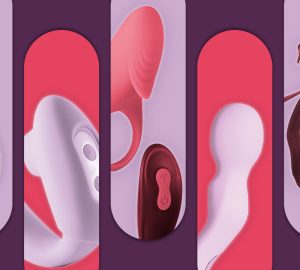Breaking the Stigma: Sex with a Chronic Condition
If you have fatigue, disability, or another chronic condition that has limited your physical activity and ability to enjoy a healthy and fulfilling sex life, it’s time to rethink how you can reignite the flame. You deserve an amazing sex life just as much as anyone else! Sexual health is an important part of overall wellbeing. Mobility constraints and medical conditions shouldn’t preclude anyone from being able to express themselves sexually in ways that are comfortable for them. Fortunately, there are adaptive tools that allow people with mobility limitations to explore new dimensions of their sexuality safely and securely.
Adaptive Tools for a Chronic Condition
Intimacy is an important part of any relationship, but for people with disabilities or a chronic condition it can be a challenge. That’s where adaptive tools come in. These innovative products can help make the experience of intimacy more comfortable, enjoyable, and accessible for everyone involved. From simple modifications like using pillows or straps to more advanced technologies like sex swings or vibrating toys, these tools can provide a range of benefits, from added comfort and support to increased stimulation and intimacy.
Crowd Favorites
This is by no means an exhaustive list but here are some options:
Go for a simple solution: a pillow. Adding a pillow beneath your butt can help with access and make sex more comfortable. Also, place it beneath your knees to make oral favors more enjoyable. Pillows can be used with virtually any position. Plus, you most likely already have some in your bed!
A position aid with adjustable straps help you get in any position, while keeping legs apart at your desired angle. The padded neck brace gives you comfort and leverage as you slip the straps onto the ankles.
Install a sex swing in your bedroom. You can even find a removeable swing, like Frequent Flyer, that fits in any doorframe. The seat and straps give your partner the control to move and adjust your hips so you can both join the Mile-High Club.
Vibrators are another great option for people who have arthritis or limited dexterity. A long-handled wand vibrator will give you or your partner the option to stimulate externally or internally, without getting painful.
Other Resources
There is a growing collection of supportive sex furniture and other tools to support mobility and increase range of motion that allow couples to explore their physical connection without feeling limited or uncomfortable. Research accessible positions and what new products are available at reliable outlets.
PleasureAble, the Sex Position Handbook, and Sex and Love and Intimacy After Spinal Cord Injury are all great resources for deeper research. While all of these resources are heteronormative, they are good starting points for inspiration regardless of orientation.
There are a few other key points to keep in mind. Communicate heavily with your partner. Use your creativity. Trust your intuition to find the positions and adaptive tools that will work for you.
Addressing the Stigma
Adaptive tools have come a long way, yet there still seems to be a stigma surrounding their use. Because of ableism, some may feel ashamed or embarrassed to utilize these tools, even though they can greatly enhance their sex life. The truth is adaptive tools can be beneficial for everyone – regardless of physical ability or limitation. It’s important to address this stigma and spread awareness about the benefits of adaptive tools.
As a disabled person who may struggle with internalized ableism, it can be quite challenging to come to terms with needing specific mobility aids, especially if it’s a new experience. Society often perpetuates negative stereotypes and social stigmas surrounding mobility aids, making it harder to accept and embrace them.
Use resources like therapy, support groups, and online communities that promote living your best life chronic illness or disability. Lean on a trusted mental health care professional and support groups. These can help you deepen the level of compassion you have for yourself and your needs. Overall, it’s crucial to remember that accepting the need for mobility aids can be a massive victory and an act of self-love. It’s okay to do everything in your power to make life (including your sex life) as comfortable and enjoyable as possible.









